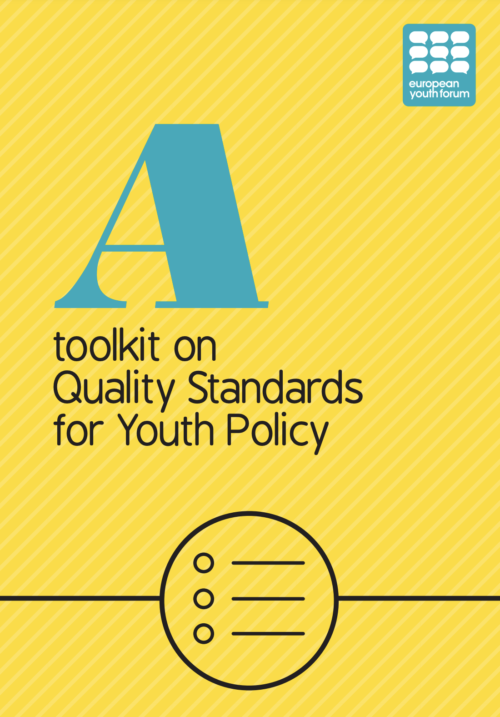A Toolkit on Quality Standards for Youth Policy
Welcome to this toolkit on quality standards, a practical tool for youth organisations to assess the state of youth policy in their context, whether it is national, regional, local, or European.
This toolkit provides you with tools, tips and tricks to look at youth policy and identify what is working well and what is not.
The quality standards for youth policy developed in this toolkit provide an adaptable framework for measuring the quality of youth policy in different contexts (local, national, European).
This publication has been developed for youth organisations and young people, primarily member organisations of the Youth Forum (or their members), but it can be used as a reference by any other youth organisations. The toolkit is currently available to download in English, Lithuanian, Spanish and Portuguese.
Related articles & publications

Fresh Faces, Big Decisions: General Assembly 2025 wraps up in Brussels
On May 9 and 10 2025, hundreds of young people gathered in Brussels for our General Assembly (GA). They all came together for two days of democratic decisions, in depth discussions and conversations around the issues that really impact and matter to young people all over Europe.
Join the European Youth Capital 2028 Focus Group
Do you have experience in fostering young people's participation in cities? Have you implemented European youth policies at a local level, or through the European Youth Capital title?

Between sirens & street songs: three days in Lviv, the European Youth Capital
In April 2025, Lviv officially opened its year as European Youth Capital. We were represented by our president and two board members. Among them was Sina Riz à Porta, the board member responsible for the European Youth Capital. What follows is a personal memoir from Sina’s three days in Lviv.
